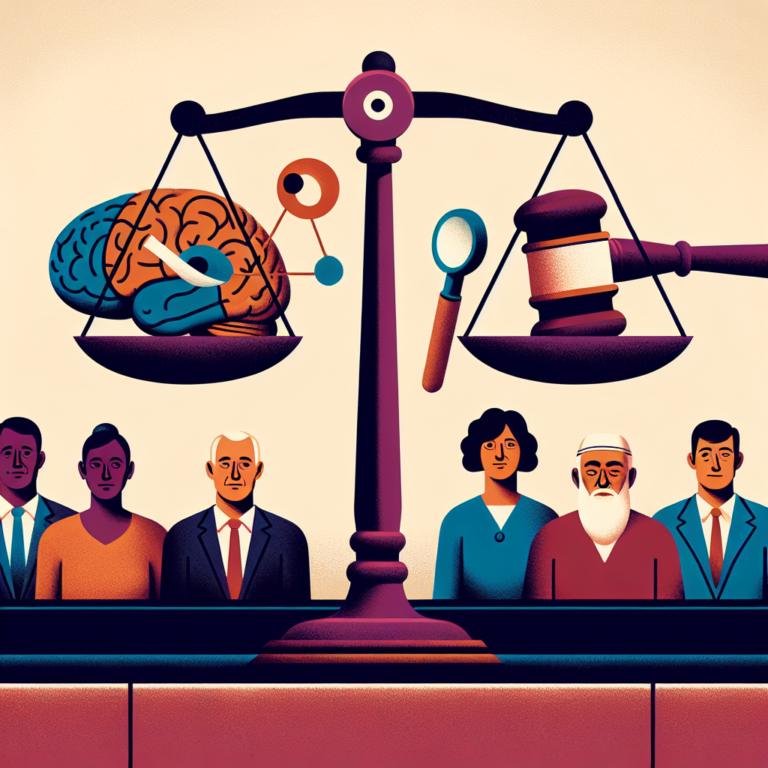
Substance abuse is a pervasive issue that affects individuals, families, and communities worldwide. The complexities surrounding addiction necessitate careful evaluation and assessment to develop effective treatment plans. Understanding Substance Abuse Evaluations: Key Questions Answered provides a roadmap for individuals seeking clarity on this pivotal topic. In an era where mental health is increasingly recognized as vital, grasping the nuances of substance abuse evaluations could be the key to breakthrough recoveries.
Introduction
Every year, millions of people grapple with substance abuse disorders, impacting not only their lives but also the lives of those around them. When facing such a challenge, one might wonder about the first steps toward recovery. This is where substance abuse evaluations come into play. They serve as the gateway to understanding the extent of the problem, guiding treatment decisions, and ultimately facilitating recovery. In this article, we will dive deep into the world of substance abuse evaluations, exploring vital questions and offering insights that make these evaluations indispensable in the recovery journey.
What is a Substance Abuse Evaluation?
Defining the Evaluation
A substance abuse evaluation is a comprehensive assessment conducted by trained professionals to determine the severity of a person’s substance use and its impact on their life.
Purpose of Evaluations
The purpose is multifaceted:
- Assessment of Severity: This includes understanding how often substances are used, the type of substances, and the consequences of use.
- Treatment Recommendations: Based on the findings, professionals recommend suitable treatment options.
- Legal or Employment Requirements: Evaluations may be needed for legal issues or workplace mandates.
Why are Substance Abuse Evaluations Important?
Evaluations not only provide clarity but can also be life-altering. Here’s why they matter:
- Personalized Treatment Plans: By identifying unique patterns, evaluations can help tailor more effective treatment strategies.
- Early Detection: Catching potential issues early can prevent more severe consequences, both physically and mentally.
- Holistic View: Evaluations consider mental health, medical history, and social factors, offering a well-rounded perspective.
Case Study: The Transformative Power of Evaluations
Take, for instance, Sarah, a 32-year-old woman battling alcohol dependence. After years of denial, a court mandated her to undergo an evaluation. The assessment revealed underlying depression and stressors she hadn’t addressed. With this comprehensive evaluation, her treatment plan included therapy for both depression and recovery from alcohol dependence, leading to her successful rehabilitation.
Relevance: Sarah’s story underscores the importance of substance abuse evaluations in identifying underlying issues that may contribute to addiction.
Key Components of a Substance Abuse Evaluation
Understanding Substance Abuse Evaluations: Key Questions Answered means knowing what to expect during the evaluation process. Critical components include:
| Component | Description |
|---|---|
| Clinical Interview | In-depth conversation about drug use, history, and life circumstances. |
| Standardized Assessments | Use of questionnaires to gauge severity and addiction potential. |
| Behavioral Observations | Observing the individual’s behavior during the evaluation process. |
| Collateral Information | Gathering insights from family members or friends, if consent is given. |
Detailed Breakdown of Each Component
Clinical Interview: This is where the evaluator builds rapport and gathers an individual’s history regarding substance use. It’s often a non-judgmental space for open conversation.
Standardized Assessments: Tools like the Addiction Severity Index (ASI) and CAGE questionnaire help quantify the severity of addiction.
Behavioral Observations: Evaluators not only rely on self-reported data but also observe nonverbal cues that may indicate substance dependence.
- Collateral Information: Family perspectives often highlight behaviors the individual might not recognize in themselves. This information is crucial for a more accurate diagnosis.
Who Conducts Substance Abuse Evaluations?
The process is typically carried out by licensed professionals specializing in addiction, including:
- Psychologists
- Social Workers
- Substance Abuse Counselors
Important Qualifications
Evaluators should hold relevant certifications and training to ensure they employ evidence-based practices throughout the evaluation process.
What Happens After a Substance Abuse Evaluation?
Post-evaluation, individuals often receive a detailed report summarizing findings. Here’s what might happen next:
- Treatment Recommendations: The evaluator suggests appropriate levels of care ranging from outpatient treatment to inpatient rehabilitation.
- Follow-Up Plans: Setting up future appointments to monitor progress and make adjustments to treatment as necessary.
- Support Resources: Recommending support groups, counseling services, and educational resources.
Common Misconceptions about Substance Abuse Evaluations
Understanding Substance Abuse Evaluations: Key Questions Answered requires dispelling myths surrounding evaluations. Here are a few:
Myth 1: Evaluations are only for people in serious trouble.
Fact: Anyone suspecting an issue with substances can benefit from an evaluation.Myth 2: Evaluations are punitive.
Fact: The goal is to provide support and a pathway to recovery, not punishment.- Myth 3: Evaluations serve merely legal or employment purposes.
Fact: They can also serve as a personal tool for self-discovery and healing.
Preparing for a Substance Abuse Evaluation
Preparation can ease nerves and create a more productive environment. Here are steps to consider:
- Self-Reflection: Consider your substance use patterns. This awareness can lead to a more in-depth discussion during the evaluation.
- Gather Documentation: If applicable, bring medical records or previous treatment histories that can inform the evaluator.
- Be Honest: Candor is crucial. The more honest you are, the better the recommendations will align with your true needs.
Case Study: Mark’s Preparedness Pays Off
Mark, a 45-year-old who had battled opioid addiction, arrived for his evaluation prepared with a journal detailing his substance use history.
Analysis: This preparation allowed for a richer conversation and more accurate recommendations, leading to a treatment path that rigorously addressed his specific challenges.
Potential Outcomes of Evaluations
Understanding Substance Abuse Evaluations: Key Questions Answered also means recognizing the potential outcomes, which can vary widely:
- Referral to Treatment: Most common, especially if substance use is frequent and harmful.
- Further Assessments: In some cases, more in-depth evaluations may be necessary.
- No Significant Issues Found: Occasionally, the assessment may conclude that no treatment is needed, although continued monitoring isn’t uncommon.
Conclusion
Navigating the complexities of substance abuse can be challenging, but with a solid understanding of evaluations, individuals can embark on a path toward recovery. Understanding Substance Abuse Evaluations: Key Questions Answered equips readers with knowledge that empowers decision-making.
Motivational takeaway: Whether you’re seeking help for yourself or a loved one, remember that evaluation is a crucial first step toward meaningful change. It’s not just about diagnosing a problem; it’s about finding solutions to lead a healthier, happier life.
FAQs Section
1. How long does a substance abuse evaluation take?
Typically, an evaluation can take anywhere from 1 to 3 hours, depending on the complexity of the case.
2. Will my information be kept confidential?
Yes, information shared during the evaluation is generally confidential, although specific circumstances may require disclosures in line with laws and regulations.
3. Do I need to prepare for the evaluation?
While preparation isn’t mandatory, reflecting on your substance use history and being ready to discuss it openly can make the process smoother.
4. How much does a substance abuse evaluation cost?
Costs can vary widely based on provider and location, but many offer sliding scale fees based on income.
5. What types of questions will I be asked?
Expect questions about your substance use history, mental health, family background, and current life circumstances to provide a comprehensive understanding.
By demystifying the substance abuse evaluation process and encouraging openness, we pave the way for healing and growth. Harness the knowledge from this guide and take that transformative first step today.















